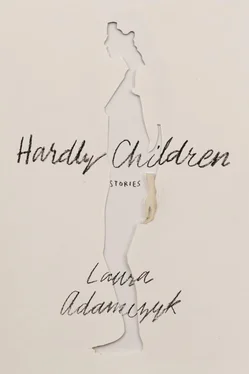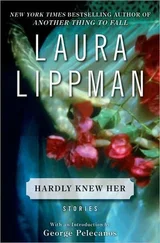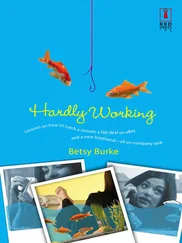Peach schnapps, she says, grinning proudly.
What are you, in high school?
I was feeling nostalgic. She shrugs and takes a pull then slips the flask back inside her jacket. I’ve gotta pee, she says. She slides down the row away from him. Although she has the shrunken hourglass body built for tight shirts and bell-bottoms and he is tall and lean, people sometimes ask them if they’re related. They usually shake their heads and laugh, but sometimes she takes JD’s hand and strokes his forearm, saying, Yes, yes we are. He turns behind him and watches her disappear into the lobby.
JD thinks of how the man in the film does not remind him of himself, nor the woman his wife, even as the driving put him in the world of long childhood car rides with his parents and younger brother to Yellowstone or the Badlands. All the games they played to keep themselves occupied. I spy and license plate or Etch A Sketch, Wooly Willy—that peach cartoon face with the magnetic dust and wand. JD would put all the black dust on one side of the face, so that half was dirty with hair and the other was clean and smooth. He’d try to keep those minute particles in place as long as he could before his brother would elbow him or the car would hit a bump and mess it all up.
On the screen is a frozen cartoon of some kind of animal JD can’t determine. A maniacally smiling mouse-like face with a thin snout and black, shiny nose. It’s popping out of a dark circle, leaning on its rim with one arm, seeming to emerge from the screen itself. Above the cartoon’s head in an old-timey script it reads, See you again soon! They usually put him up after the movie is over and all the credits are done. The thing is winking and giving JD an exaggerated thumbs-up. Maybe everything is fine! it shouts. Maybe you can do whatever you want! He thinks of the man in the car, how he left his home for no discernible reason, moved from one place to another as swift and silent as a ghost. Some people can do that, he thinks, just leave. How easy it is to do anything at all if none of it need be explained, no cell phone ringing in the man’s pocket, no letter left behind. JD is logical, practical. He’s old enough to know that about himself, but he can’t help feeling that, like the man in the movie, his story is happening somewhere else without him. People are returning to the theater, squeaking down in the old, springy seats, cracking their necks, preparing for another hour and a half of something they don’t understand. JD turns behind him, sees a few stragglers in the lobby.
Outside the theater, a gentle wind pushes around a few leaves on the sidewalk, swirls them, and lets them fall. It isn’t yet autumn, but Cheryl is anxious for it, wants to speed it along by walking in any direction, as though the season were a location she could travel to. A group of couples passes in front of the theater—light skirts and khaki pants—pointing at each other animatedly, debating something hilarious. No way . So not true! one of them asserts. Not just one pair, but a whole slew, a loose mass of well-groomed citizens. Surely there is a name for such a group, she thinks, just as there can be a pride of lions, a murder of crows. Those laughing teams of husbands and wives: A prance of pairs, maybe. A coup of couples? She doesn’t know how people live inside their happiness so effortlessly. She seems to drag hers around like an unwitting child forever tugging backward on her hand. What are you doing back there? Keep up ! When she finally gets her happiness beside her, she never knows exactly what to do with it. She’ll ignore it, shout it away, or stand it up, make it do a little dance for her friends. Show all the nice people the cute thing you did for Mommy! Do it just like I showed you! Inevitably it will fail her, tripping on its black shoes or raising its white, fluffy skirt above its head. She doesn’t care, Cheryl tells herself. She left it inside the theater. By now it’s probably crawling around on the soda-sticky floor, tying JD’s shoelaces together or telling strangers her secrets—Mommy has a flask in her jacket pocket, I saw it!
That is, of course, the way JD must see her, she thinks. A silly, brassy thing doing leg kicks and getting him into trouble. He called her a bitch. Isn’t that the way she always plays it? The tough guy? She’d probably shake and shake with nervous cold were he to ever touch her. It would have to be an accident, like him hitting that man, something he would feel embarrassed about later.
A young, skinny thing jogs down the sidewalk toward her, dark-rimmed glasses and a pair of beat-up tennis shoes. He gives her a smiling nod and a hey before ducking through the theater’s double doors. She had allowed herself the pleasure of disappearing into the film, of watching the man move through its world with no purpose, like watching a pair of neighbors through a window silently eating dinner. It was more than just how it looked—the past of the film giving it all a matte, grainy mystery, a this-kind-of-thing-doesn’t-happen-anymore glow—but there was something disquieting in its moody anticipation, a feeling that the more that nothing happened, the worse it would be when something finally did. Or nothing will happen, Cheryl thinks. The film will just keep going and going until it stops—no climax, no big coming-to-a-head scene, no resolution to take home with her.
She wishes she smoked. She never knows what to do with her hands when she’s outside doing nothing. To that group of couples, she must have looked like she was waiting for someone. Shoving her hands in her pockets, she walks toward the dark, wooded park across from the theater. When she gets to the end of the street, she crosses and keeps going. She thinks about going home, what awaits her there. She will pull her dark hairs out of her hairbrush, twist them into a coarse ball, and throw them away. She will call in sick on Monday and maybe the day after that. Or she won’t call at all, won’t tell anyone. Let them imagine, for a time, their lives without her. Taking a left down an unlit street, a canopy of dark trees that will soon lose their leaves, she sees JD sitting in the theater, adjusting his cap, sighing, as the movie begins again. With films like that one—quiet, difficult to understand, meaning kept hidden—she won’t be surprised when the little theater doesn’t make it.
III.
OR, BEFORE GOING OUT,he receives a letter. We see him returning from work, retrieving an envelope from the small, rust-colored box just outside his front door. The envelope is plain and white but asserts its presence for not being a bill—no tiny cellophane window to peek through—and for the name on the front: the man’s own. There is a return address from a Spanish-sounding name of a town in California. It is the only mail this day—the envelope thick and soft, many pages—and he takes it in the house with him, opening it alongside a bottle of beer at his small kitchen table.
The sheets of paper within have been folded into thirds. Dear James , the first page begins. A thick black ink, a decent pen. Looking back to the return address, the man wonders who knows him in California, anywhere near California. The letter instructs James to copy—either by typewriter or by hand—the letter and its accompanying pages, a text written by the letter’s previous recipients, and then to add his own paragraph at the end. He’s to do this three times and send each letter to a different person within three days. The letter’s author—in a boxy, forward-leaning handwriting, neither masculine nor feminine, neither script nor print—goes on to detail the fates of previous recipients who did not follow the instructions. A woman in Ohio was strangled by her husband of fifteen years, he having accused her of cheating. A boy, a teenager, took his dog for a walk in the forest preserve a mile from his house; the collie returned two days later without him. Car wrecks on long stretches of night highway without another vehicle for miles; allergic reactions; sudden, previously unknown medical maladies; amnesia. The man has never been a member of a team, has always been wary of groupthink and anything that involves a number of people doing the same thing at the same time: school choir, church, disco. More something his superstitious wife would be into. He flips to the next page. Above a solid block of text, in the same pen as the first page, hangs the title: An Old Story. In some versions, he keeps reading.
Читать дальше











